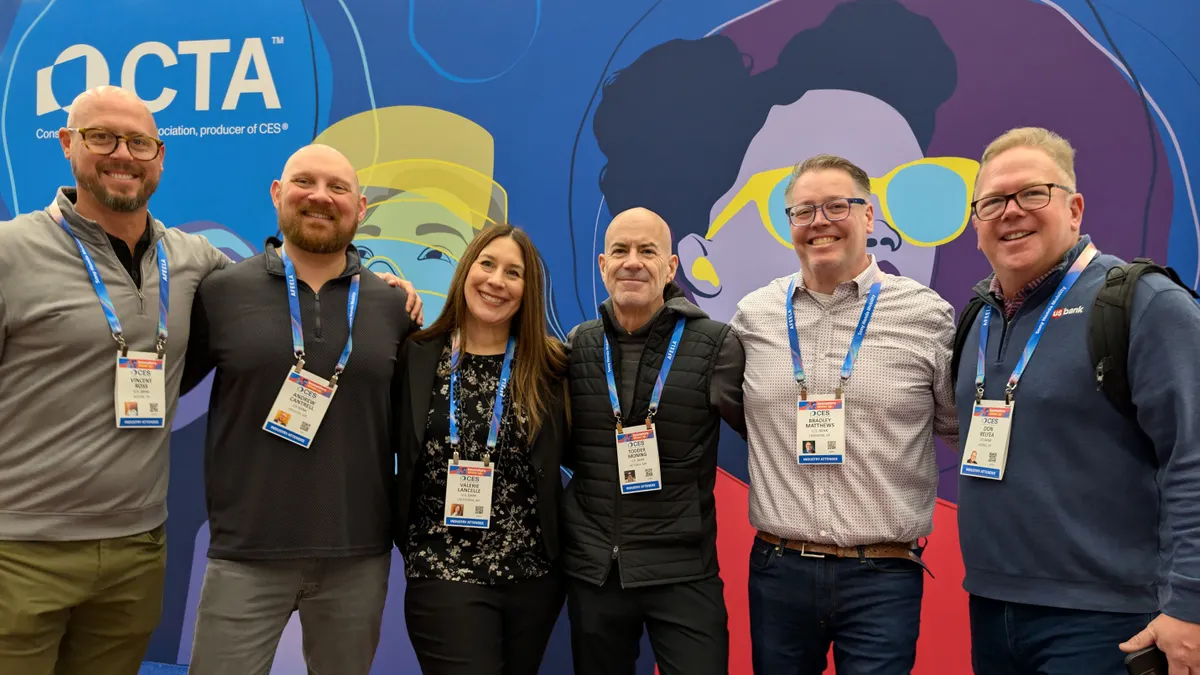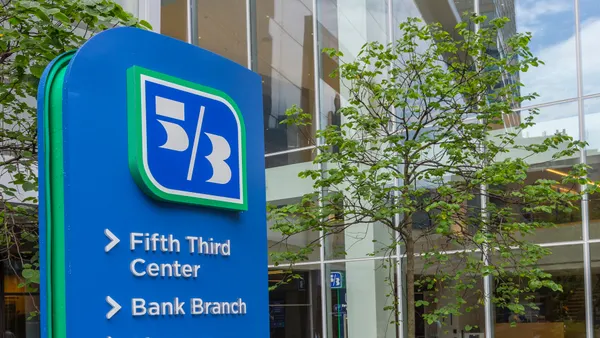When it comes to personal relationships with customers, it’s difficult for digital companies to replicate what community banks have, Robinhood CEO Vlad Tenev told a group of community bank CEOs last week.
“It’s inherently a little bit more challenging for a digital-only platform to have that type of deep relationship with customers,” he said during a fireside chat at Thursday’s Federal Reserve community bank conference. “That's an advantage community banks have. We try as much as possible to replicate that digitally.”
Robinhood, which 38-year-old Tenev co-founded with Baiju Bhatt in 2013, gained prominence with its no-fee stock trades and interface geared toward younger consumers. More recently, the company has sought to enter the banking realm, announcing the addition of those services in the first quarter.
“At first, our assumption was that we could do everything digitally,” Tenev said of the company’s beginnings. “If you require anything other than simple processing of your trade or transaction, we won't get in there.”
Executives have discovered, as customers’ needs have become more complex, “at this point, it's hard to replicate the personal relationship,” Tenev said.
“You guys shouldn't be too worried about AI,” he told the group of about 100 community bank CEOs. “If you're a financial adviser or personal banker, private banker, in some ways, these folks are people that you have relationships with, and I think the information and the advice itself can often be commoditized, but I think it'll be very hard to replace that feeling.”
This year, Menlo Park, California-based Robinhood rolled out concierge services, geared toward customers using several of the company’s products and keeping a sizable amount of money with the fintech. “We want them to have a representative that they can text, they can communicate with,” Tenev said.
Banks have room for improvement, however, when it comes to courting younger customers, he contended.
Pursuing the family relationship is a prime opportunity available to community banks, and it’s one that Robinhood is also “trying to seize aggressively,” he said.
“A lot of people find out about banking through their parents, maybe grandparents,” he said, recalling his parents opening an account for him at a local bank branch when he was younger.
“My impression, both as a customer and kind of as an entrepreneur in the space, is that I think the young people are kind of undervalued by a lot of the banks.”
He cited young consumers’ challenges in getting credit cards if they’re not well-paid, and noted growth opportunities in college markets.
“I don't think a lot of fintechs or banks are taking that seriously, because I think the family network is such an important one, and it's low-hanging fruit for growth, as well as building trust,” Tenev said.
Younger consumers’ relationship with credit cards has been influenced by the Credit Card Accountability, Responsibility, and Disclosure Act of 2009, which introduced more hurdles for those under 21 trying to get a credit card, like a cosigner or income proof requirements. The law also barred card issuers from soliciting on college campuses, causing companies like Capital One and Citi to pull back on previously heavy student marketing.
Robinhood’s banking services are provided by Everett, Washington-based Coastal Community Bank. The fintech this month externally rolled out its banking services, allowing non-employees to open accounts, Tenev said. The company aims to be a financial “super app,” handling all of a customer’s finances.
The fintech seeks to offer “private banking accessible to everyone,” Tenev said. “So what are the things that a high net-worth individual would get from a private bank? And can we actually replicate that experience, both in terms of products and product quality and service, with a digital form factor?”
He argued the company’s services are differentiated among fintechs, many of which are targeting paycheck-to-paycheck consumers. Still, Robinhood faces no shortage of competitors chasing high net-worth customers, which Tenev acknowledged are “the most in-demand.”
Although Robinhood was initially considered a millennial company after it launched, the CEO noted the fintech is “trying hard to avoid” being a generational company.
“We have to be really careful to make sure we're always paying attention to the younger generation, because you don't want to eventually be stuck servicing customers that are getting older and might not be around forever,” Tenev said.
One of the company’s considerations, he said, is: “How do we make your brokerage account and your bank account work better when your whole family is on it?”




















